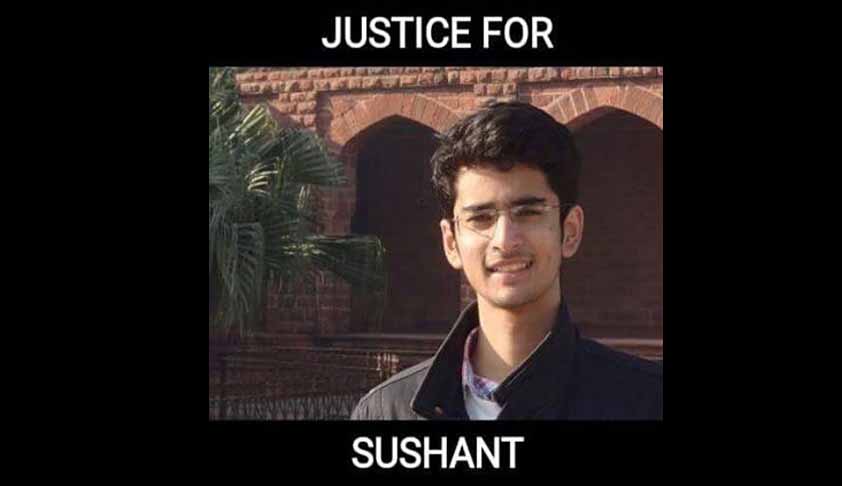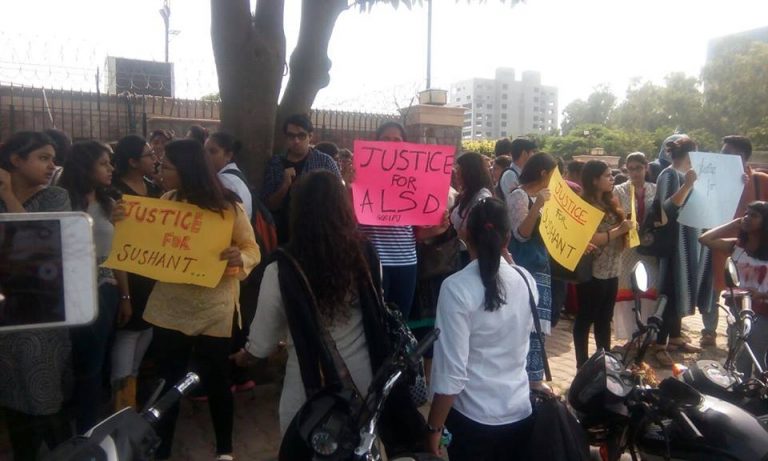Breaking: Fali Nariman to assist Supreme Court in suo motu petition over Sushant Rohilla suicide
The Apex Court of India has agreed to hear the appeal filed by Sushant Rohilla’s family and friends. It has been more than three weeks since Sushant rohilla a student of Amity Law School (IPU) committed suicide as he was denied permission to write his exams for lack of attendance.
The Supreme Court will on Monday take up as a PIL a letter written to Chief Justice of India TS Thakur and other judges by Sushant’s friend Raghav Sharma on August 20, requesting them to not allow Sushant’s death to remain just another incident of a student’s suicide.
Read: Amity Student commits suicide, kin claims harassment by college
Raghav, along with Sushant’s sister Mehek and uncle Dinesh, had earlier taken the campaign to social media, creating the hashtag #JusticeForSushant which had gone viral and had garnered mass support.
As reported by Newsd, the 21-year-old third year law student had hanged himself at his home in Delhi on August 10 after Amity barred him from sitting for semester exams because he did not have the requisite attendance. Sushant left behind a note saying he was a failure, and did not wish to live.
Though, on the surface it looked like a case of suicide but later on it was revealed that two faculty , who had earlier been accused by numerous alumni and students of allegedly harassing the students and “torturing them for attendance.” It was also made clear that “only IP University had the discretion to issue admit cards and Sushant was issued one from IP but Amity did not allow him to sit for the exams.
Read: #JusticeforSushant: Faculty resigns as pressure mounts on Amity
Isheeta Rutabhasini and BP Sehgal resigned nine days after Sushant’s suicide, amidst protests by the students and alumni.
Read: Amity student suicide: Faculty sent on forced leave
A week after the incident, Amity Law School had said in a statement that Sushant had 43% attendance and this had been “conveyed to his parents many times through mail”. The school is affiliated to Guru Gobind Singh IP University, the statement said, and “the attendance, as per the rules of IP University, was sent to IP, which has the sole discretion to issue admit cards… for sitting in examinations.”
It was reported by Newsd, that despite Sushant’s good performance in examinations and his exceptional debating skills Sushant, was forced to repeat an entire academic year in the five-year BA LLB course because he had failed to maintain 75% attendance, despite having bone fide reasons for missing college.
Read:IP allowed Sushant, Amity debarred him
He had also written to the founder president of the Amity Group, pleading with him to allow him to sit for the semester exam, since he had valid reasons for not being able to attend classes.
In his email to the founder president, Sushant had underscored his accomplishments in moot court competition and other extra curricular activities, and written that debarment from the exam would destroy him, and he might not “mentally survive” it.
The letter to the CJI and other judges pointed out that Sushant’s family had filed a criminal complaint, accusing the teacher of abetment to suicide, and asking that the college be tried for being “institutional abettors”.
Raghav’s letter was placed before the Supreme Court’s PIL committee, comprising Justices Anil R Dave and J S Khehar, which directed the registry to treat it as a writ petition under Article 32 of the Constitution since it raised issues of violation of fundamental rights of students.
The family has pleaded the constitution of an independent committee to probe Sushant’s suicide following alleged prolonged harassment and torture by the college administration, and the particular teacher and have urged the court to formulate rules and regulations for all colleges and institutes of higher education across the country to look into mental health issues being faced by students, for which there is no redressal.


















